Discover Culture Study Podcast
Culture Study Podcast

104 Episodes
Reverse
I don't remember when I first noticed Eldest Daughter content popping up in my various social media feeds, but like so many millennials, I loved a meme that seemed to REALLY SEE ME. Why yes, I am a consummate planner who somehow holds at least six people's yearly calendars in my head at once! Why yes, I am a perfectionist! WHY YES, I AM AN ELDEST DAUGHTER!Does Eldest Daughter discourse give Eldest Daughters a means to communicate their (sometimes contradictory) feelings about their familial and societal roles? Or is it a way for Eldest Daughters to lean into their own martyrdom complexes? And how does being the immigrant eldest daughter compound your Eldest Daughter-ness? We got Eldest Daughter Ifeoma Ozoma to come on the show and help me (Eldest Daughter) and Melody (also Eldest Daughter, duh) answer all your questions — and work through our own changing relationship to the Eldest Daughter Discourse. (And yes, there's a reason this one's coming out during the holidays, the best/worst time to be an Eldest Daughter) ALSO GUESS WHAT, WE HAVE VERY GOOD EPISODES TRANSCRIPTS NOW! They come out within 24 hours of the pod, so you just have to be a little patient and then come back and click here. We pay an actual human for help with these, so thank you for either being a paid subscriber or listening to the ads that make this model possible! If you're a paid subscriber and haven't yet set up your subscriber RSS feed in your podcast player, here's the EXTREMELY easy how-to .And if you're having any other issues with your Patreon subscription — please get in touch! Email me at annehelenpetersen @ gmail OR submit a request to Patreon Support. Thank you for making the switch with us — the podcast in particular is much more at home here!Thanks to the Sponsors of Today's Episode! Get 15% off OneSkin with the code CULTURE at https://www.oneskin.co/CULTUREGet 15% off your first order of cleaning products by going to Blueland.com/CULTURETry Beam's Dream Powder for up to 40% off at shopbeam.com/CULTURE and use code CULTUREHead to Zbiotics.com/CULTURESTUDY and use the code CULTURESTUDY at checkout for 15% offShow Notes:Ifeoma Ozoma is an eldest daughter and also A TOTAL BOSS (TRULY)At the end of the episode we talk about her advocacy with Niños and Neighbors — you can read more about it here and join their mailing list/donate here The Eldest Daughter Club on IG (218k followers!) The study I referenced re: stress during pregnancy and hormones in eldest daughters comes out of UCLA — you can find more about it here We're currently looking for your questions for future episodes about:'90s Movie SoundtracksHow we think about the morality of money and taxes — who should pay taxes, who shouldn't, who "deserves" money, who doesn't, how we came to decide that religious organizations shouldn't pay taxes (and how that belief is changing), SO MUCHHow to process all the STUFF accumulated from relatives (we have a really helpful organizer with a bunch of mental health training for this one!) The State of The CHAIN RESTAURANT — and chain restaurant supply chain!!! (I'm so excited for this one) Anything you need advice or want musings on for the AAA segment. You can ask about anything, it’s literally the name of the segmentAs always, you can submit your questions (and ideas for future eps) hereFor this week’s discussion: Do you have eldest daughter energy? If you do, how has it changed over time? And if you don't: how do you relate to eldest daughters?
Sometimes I wish I could just have the intro paragraph to an episode be GAAHHHHHHH THIS ONE WAS SO FUN! So this is my version of that: telling you that I wish it could be that, and then also telling you that we go deep on so many components of the global spread (and embrace) of Korean pop culture. We go into the calculated political elements, the uncanny elision of North Korean stories, and why so many of the Korean narratives resonating with American audiences are ones crafted by Korean-Americans. This is a really effusive and loving episode that also manages to have some very real talk about why kids dressing up as characters from K-Pop Demon Hunters is not yellow face. IT'S SO GOOD, and I know we're gonna have a great discussion about it. ALSO GUESS WHAT, WE HAVE VERY GOOD EPISODES TRANSCRIPTS NOW! They come out within 24 hours of the pod, so you just have to be a little patient and then come back and click here. We pay an actual human for help with these, so thank you for either being a paid subscriber or listening to the ads that make this model possible! If you're a paid subscriber and haven't yet set up your subscriber RSS feed in your podcast player, here's the EXTREMELY easy how-to .And if you're having any other issues with your Patreon subscription — please get in touch! Email me at annehelenpetersen @ gmail OR submit a request to Patreon Support. Thank you for making the switch with us — the podcast in particular is much more at home here!Thanks to the Sponsors of Today's Episode! Stop putting off those doctors appointments and go to Zocdoc.com/CULTURE to find and instantly book a top-rated doctor today.Head to Graza.co/CULTURESTUDY and use code CULTURESTUDY to get 10% off your order and get cooking this holiday season with some fresh, delicious olive oil!Visit moshlife.com/CULTURE to save 20% off plus FREE shipping on the best sellers trial pack or the new plant-based trial pack.Go to shopremi.com/CULTURE and use code CULTURE to receive 55% off your new nightguard PLUS a free foam gift.Show Notes:GO LISTEN TO BIG KOREAN ENERGY!!! And then go find out a lot more about The Mash-Up AmericansSubscribe to The Mash-Up Americans newsletter for updates Really cannot recommend Episode 1 highly enough — it puzzle pieces so well with what we talk about for each of these questions A good secondary listen: our episode with Elise Hu about the Sephora Teen Freakout and my interview with Elise re: her book on K-Beauty We also reference this episode on The Irishification of Pop Culture with Caroline O'Donoghue REP SWEATSTHE KOREAN VEGAN!R.O. Kwon's appearance on Big Korean EnergySusan Choi's Flashlight, Min Jin Lee's Pachinko, Lisa See's Island of Sea Women I try to remember the name of Kim Ji-Young, Born 1982 by Cho Nam-Joo We're currently looking for your questions for future episodes about:Questions About How to Respond When People Ask/React To the Knowledge That You're Not Having Kids'90s Movie SoundtracksHow we think about the morality of money and taxes — who should pay taxes, who shouldn't, who "deserves" money, who doesn't, how we came to decide that religious organizations shouldn't pay taxes (and how that belief is changing), SO MUCHHow to process all the STUFF accumulated from relatives (we have a really helpful organizer with a bunch of mental health training for this one!) The State of The CHAIN RESTAURANT — and chain restaurant supply chain!!! (I'm so excited for this one) Anything you need advice or want musings on for the AAA segment. You can ask about anything, it’s literally the name of the segmentAs always, you can submit your questions (and ideas for future eps) hereFor this week’s discussion: What's your favorite manifestation of BIG KOREAN ENERGY right now?
Do you need an episode that's the equivalent of a big, deep, inhale and exhale? GREAT NEWS, TEAM, WE HAVE THE EPISODE FOR YOU. Journalist and urban birder Ryan Goldberg joins me to talk about the recent spike of interest in birding (particularly amongst young people), but we go a lot deeper than "wow seems like millennials are taking up old people hobbies." We talk about the intergenerational magic of birding clubs, bird list gamificiation (and how to avoid it), and how apps like Merlin have changed birding culture. But the real heart of this episode is what makes people fall in love — and stay in love — with a hobby that's really, at heart, about listening. I'm not a birder, so this episode will be accessible to anyone in my shoes (or who's birding-curious) — and if you are a birder, get ready to nerd out. I hope your blood pressure drops a few points while listening, because my mine sure did while recording.If you're a paid subscriber and haven't yet set up your subscriber RSS feed in your podcast player, here's the EXTREMELY easy how-to .And if you're having any other issues with your Patreon subscription — please get in touch! Email me at annehelenpetersen @ gmail OR submit a request to Patreon Support. Thank you for making the switch with us — the podcast in particular is much more at home here!We're experimenting with producing our own (moderately polished) transcripts. They'll be uploaded here within 24 hours of publishing. Thanks to the sponsors of today’s episode!Take the guesswork out of your dog's well-being. Go to ollie.com/culture and use code culture to get 60% off your first box!Upgrade your sleep with Miracle Made! Go to https://trymiracle.com/CULTURE and use the code CULTURE to claim your free 3-piece towel set and save over 40% OFF.Get better sleep, hair and skin with Blissy and use CULTUREPOD to get an additional 30% off at blissy.com/CULTUREPOD Get an exclusive $35 off Carver Mat at https://on.auraframes.com/CULTURE, promo Code CULTUREShow Notes:Buy Bird City here! Learn more about Ryan's work here — also noting two upcoming events (learn more on his website) An Eastern Towee in action (with its call!) A lovely birding guide to Central ParkJoin the Brooklyn Bird Club! All about the Merlin app Black Birders Week!Feminist Bird ClubThe Macaulay Library of Bird SongsThe hungover birdwatcherWe're currently looking for your questions for future episodes about:WEIRD ENGLISH WORDS (where do they come from!) with Colin Gorrie, who writes explainers like this one on the word DOGQuestions About How to Respond When People Ask/React To the Knowledge That You're Not Having KidsThe Wild Largely Unregulated World of IVF (and IVF Bureaucracy) Audiobooks!!! (with MVP audiobook narrator Julia Whelan)'90s Movie Soundtracks How we think about the morality of money and taxes — who should pay taxes, who shouldn't, who "deserves" money, who doesn't, how we came to decide that religious organizations shouldn't pay taxes (and how that belief is changing), SO MUCH PEOPLE'S NAMES and what they signify (and how it changes with time) Anything you need advice or want musings on for the AAA segment. You can ask about anything, it’s literally the name of the segmentAs always, you can submit your questions (and ideas for future eps) hereFor this week’s discussion: Tell me about your experience with birding culture — or something about this episode that made you want to get into it! (I bet it was me laughing like a 5 year old about birds named tits)
When I went freelance full-time to write Culture Study, I had no idea what I was doing. NONE. It took me several years — and encouragement from my accountant and other writers — to begin thinking of what I was doing as a small business. And it took me several years after that to understand how small businesses, especially small creative businesses, have to figure out strategies to fend off burnout in order to, well, stay in it for the long haul. We have to make our creative work and our business practices sustainable. Printmaker and textile artist Jen Hewett was one of the first people I saw talking frankly about what it's like to run a creative small business — the stuff that takes way too much time, the stuff that's super annoying, how she budgets and takes time off and deals with eldercare and divides her days and weeks and years. We loved answering all your questions about SMALL BUSINESS LYFE — balancing the 'business' with the 'creative,' how to think about social media promotion, how to protect a hobby from becoming a business — and I can't wait to talk more in the comments.If you're a paid subscriber and haven't yet set up your subscriber RSS feed in your podcast player, here's the EXTREMELY easy how-to .And if you're having any other issues with your Patreon subscription — please get in touch! Email me at annehelenpetersen @ gmail OR submit a request to Patreon Support. Thank you for making the switch with us — the podcast in particular is much more at home here!Side Note: We're experimenting with producing our own (very imperfect) transcripts. You can find it here. If there's enough demand, we might consider putting in the not insignificant labor to make these super readable — but for now, they're a backup to the podcast, not a replacement for it. Thanks to the sponsors of today’s episode!Visit AuraFrames.com and get $45 off Aura's best-selling Carver mat frames by using promo code CULTURE at checkoutSupport local bookstores and get 10% off your next purchase at Bookshop.org with code CULTUREIf you're in the market for a beautiful new sofa, dining table, or bed, check out the beautiful, long-lasting options at Article.comGo to WildAlaskan.com/CULTURE for $35 off your first box of premium, wild-caught seafoodShow Notes:Follow Jen Hewett on Instagram (she is SUCH a good follow) Jen's Reimagined Landscape Fabric Collection just came out AND IT IS EXQUISITELearn more about Jen's work here We're currently looking for your questions for future episodes about: WEIRD ENGLISH WORDS (where do they come from!) with Colin Gorrie, who writes explainers like this one on the word DOGQuestions About How to Respond When People Ask/React To the Knowledge That You're Not Having Kids How Did Everyone Low-Key Become an Influencer? AKA How do you see influencer posting logic creeping into non-influencer accountsThe Wild Largely Unregulated World of IVF Audiobooks!!! (with MVP audiobook narrator Julia Whelan) Anything you need advice or want musings on for the AAA segment. You can ask about anything, it’s literally the name of the segmentAs always, you can submit your questions (and ideas for future eps) hereFor this week’s discussion: I'd love to hear about your own experiences (and challenges) running a small business!
What is it about a particular cultural object — or trend, or perceived trend — that makes people FREAK THE F OUT? Anyone who's looked at historical freakouts knows: it's never really about the thing itself, but more about ideologies that are under threat and in flux. If you challenge the status quo, in other words, there's a high likelihood that you could get swept up in a panic about something that has nothing to do with the way in which you're actually challenging the status quo.The best person to talk about these sort of freak-outs is Sarah Marshall, beloved host of You're Wrong About and current host of a new CBC limited series on the satanic panic called The Devil You Know. In this episode, Sarah brings her trademark empathy to your smart questions about freak-outs old and new (yes, we talk about kids & screens, but not for the entire episode). This episode was an utter delight to record and I can only hope you enjoy the conversation as much as I did. If you're a paid subscriber and haven't yet set up your subscriber RSS feed in your podcast player, here's the EXTREMELY easy how-to .And if you're having any other issues with your Patreon subscription — please get in touch! Email me at annehelenpetersen @ gmail OR submit a request to Patreon Support. Thank you for making the switch with us — the podcast in particular is much more at home here!Side Note: We're experimenting with producing our own (very imperfect) transcripts. You can find it here.If there's enough demand, we might consider putting in the not insignificant labor to make these super readable — but for now, they're a backup to the podcast, not a replacement for it. Thanks to the sponsors of today’s episode!Upgrade your sleep with Miracle Made! Go to https://trymiracle.com/CULTURE and use the code CULTURE to claim your free 3-piece towel set and save over 40% OFF.Get 15% off OneSkin with the code CULTURE at https://www.oneskin.co/CULTURE Go to shopbeam.com/CULTURE, use code CULTURE, and get up to 50% off during Beam’s Cyber SaleVisit AuraFrames.com and get $45 off Aura’s best-selling Carver Mat frames - named #1 by Wirecutter - by using promo code CULTURE at checkoutShow Notes:Listen to THE DEVIL YOU KNOW on CBC or wherever you get your podcasts! More about Sarah's work hereListen to You're Wrong About here If you missed the episode we did on conspiracy theories last year, it's a great companion to this oneWe're currently looking for your questions for future episodes about: WEIRD ENGLISH WORDS (where do they come from!) with Colin Gorrie, who writes explainers like this one on the word DOGQuestions About How to Respond When People Ask/React To the Knowledge That You're Not Having Kids How Did Everyone Low-Key Become an Influencer? AKA How do you see influencer posting logic creeping into non-influencer accountsThe Wild Largely Unregulated World of IVF Audiobooks!!! (with MVP audiobook narrator Julia Whelan) Anything you need advice or want musings on for the AAA segment. You can ask about anything, it’s literally the name of the segmentAs always, you can submit your questions (and ideas for future eps) hereFor this week’s discussion: I'd love to hear your alternate reads on what caused any of the cultural panics we discussed in the show.
If you're a paid subscriber and haven't yet set up your subscriber RSS feed in your podcast player, here's the EXTREMELY easy how-to .And if you're having any other issues with your Patreon subscription — please get in touch! Email me at annehelenpetersen @ gmail OR submit a request to Patreon Support. Thank you for making the switch with us — the podcast in particular is much more at home here!I love books with complicated lore. I love plots that interrogate the way power accumulates and spoils — particularly but not exclusively on Ivy League campuses. I love it when a character learns of UNKNOWN POWERS, and I love a good heist. Which means I fell in love with Leigh Bardugo's books immediately. My favorite is Ninth House (and its sequel, Hell Bent) but she is equally well-known for the Shadow and Bone series and the duology Six of Crows, which was just re-released for its tenth anniversary... all of which pop up all over the Culture Study reading rec threads whenever we have them. So imagine my surprise when Leigh's team heard that Culture Study loved Leigh's work and would we like to have Leigh come on the show? YES, OF COURSE. And listen, I knew this conversation was gonna be great. But I didn't realize it was gonna be this great. We talk about genre, marketing, all the nerdy books she read as a teen, how to think about YA and exposure to the things that scare us, and, of course, whether there's gonna be a follow-up to Hell Bent. As always, we've worked hard to make this conversation interesting to people who aren't familiar with Leigh's work — all you have to be is interested in books, just generally — but if you're a fan, you're really gonna love it. Side Note: We're experimenting with producing our own (very imperfect) transcripts. You can find it here. If there's enough demand, we might consider putting in the not insignificant labor to make these super readable — but for now, they're a backup to the podcast, not a replacement for it. Thanks to the sponsors of today’s episode!Head to Graza.co/CULTURESTUDY and use CULTURESTUDY to get 10% off your order and get cooking this holiday season with some fresh, delicious olive oilTo stock up on sustainable cleaning products for yourself, or to give a beautiful, sustainable gift to your friends and family this holiday season, go to Blueland.com/CULTURE and save up to 30% during Blueland’s holiday saleHead to moshlife.com/CULTURE to save 20% off plus FREE shipping on the best sellers trial pack or the plant-based trial packGo to shopremi.com/CULTURE and use code CULTURE at checkout for 55% off a new night guard plus a FREE foam gift that whitens your teeth and cleans your nightguardShow Notes:Find all of Leigh's books at Bookshop — and here's how you can buy the new edition of Six of Crows Subscribe to Leigh's newsletter here Find out more about Leigh's work just generally here; I personally loved this profile in AltaLeigh references: The Dragonlance Chronicles, the Louise Erdrich short story "Fleur" which was printed in Esquire but can now be found in Tracks I reference Linda Williams' groundbreaking work on melodrama as a modeI reference our episode with Sarah MacLean where we talk about how romance writers first books are often their best (and why)Just in case you somehow don't know about Bunnicula We're currently looking for your questions for future episodes about: Eldest daughter discourseThe sociology of NAMES (naming trends, naming assumptions)WEIRD ENGLISH WORDS (where do they come from!) with Colin Gorrie, who writes explainers like this one on the word DOGAnything you need advice or want musings on for the AAA segment. You can ask about anything, it’s literally the name of the segmentAs always, you can submit them (and ideas for future eps) hereFor this week’s discussion: What's your favorite Leigh Bardugo book? OR OBVIOUSLY ANYTHING ELSE! Like how do you think about being exposed to 'scary' ideas as a younger reader?
If you're a paid subscriber and haven't yet set up your subscriber RSS feed in your podcast player, here's the EXTREMELY easy how-to .And if you're having any other issues with your Patreon subscription — please get in touch! Email me at annehelenpetersen @ gmail OR submit a request to Patreon Support. Thank you for making the switch with us — the podcast in particular is much more at home here! I've never resisted Love is Blind so much as run out of time for it... but then Audie Cornish said she wanted to come on the show to talk about it, and I said: I will watch any reality show, in its entirety, to talk to you about it. (Cornish was previously best known as the co-host of NPR's All Things Considered; now she is best known as the host of CNN's early morning newscast and The Assignment with Audie Cornish). I did my homework and thought I had smart things to say about Love is Blind and then Audie had way, way smarter things to say, specifically about the ways in which this current season functions as a skeleton key for the ideologies battling for dominance in our cultural moment. Even if you've never watched an episode of Love is Blind, there's a LOT here about how people perform their identities and politics and relationship needs that will snag you — and if you have watched this season (or any season), you're gonna love it even more. What a privilege to have Audie Cornish on-air cackling over reality television, and what a delight! Thanks to the sponsors of today’s episode!Stop putting off those doctors appointments and go to Zocdoc.com/culture to find and instantly book a top-rated doctor today.Take the guesswork out of your dog's well-being. Go to ollie.com/culture and use code CULTURE to get 60% off your first box!Go to https://zbiotics.com/CULTURESTUDY and use CULTURESTUDY at checkout for 15% off any first time orders of ZBiotics probiotics.Get better sleep, hair, and skin with Blissy. Use code CULTUREPOD to get an additional 30% off at blissy.com/CULTUREPODShow Notes: Go listen to Audie's fantastic podcast The Assignment Follow Audie on InstagramYou can also catch Audie as the anchor of CNN This Morning, airing weekdays from 6-7AM ET and streaming in the CNN appI really appreciate the Love is Blind Reddit and I know Audie and Melody do too No I am not uploading my Laguna Beach grad school paper what is wrong with you the writing is horrific We're currently looking for your questions for future episodes about:Contemporary Dating Culture!!! Why does it suck, how can it suck less! (with Jonquilyn Hill)Eldest daughter discourseThe sociology of NAMES (naming trends, naming assumptions)WEIRD ENGLISH WORDS (where do they come from!) with Colin Gorrie, who writes explainers like this one on the word DOGAnything you need advice or want musings on for the AAA segment. You can ask about anything, it’s literally the name of the segmentAs always, you can submit them (and ideas for future eps) hereFor this week’s discussion: We can obviously talk about Love is Blind, but I'd also love to hear how you think other reality shows are reflecting the conflicting ideologies of this moment.
People are fascinated by hoarding culture — in part because it presents a reality that's not that distant from our current accumulation habits. Like, turn one screw in my brain slightly more to the left, and my dahlia collecting habit becomes something that's widely understood as a social problem. When I heard about Amanda Uhle's Destroy This House, a memoir of growing up in a hoarding household, I knew listeners would want to explore that fine line between "proper" consumption and hoarding, the stories we tell about why people hoard, and the real difficulty in navigating hoarding behaviors by people you love. Culture Study is now on Patreon! To read about why we moved, go here.Thanks to the sponsors of today’s episode!Use code CULTURE to get 10% off your next order at Bookshop.orgGet $35 off your first box of wild-caught, sustainable seafood—delivered right to your door. Go to: https://www.wildalaskan.com/CULTUREGet 15% off OneSkin with the code CULTURE at https://www.oneskin.co/Use code CULTURE at jonesroadbeauty.com to get a Free Cool Gloss with your first purchaseShow Notes:GO BUY DESTROY THIS HOUSE: https://bookshop.org/a/56144/9781668083444Follow Amanda's work here: https://www.instagram.com/amanda.uhle/?hl=enI reference Stuff: Compulsive Hoarding and the Meaning of Things: https://bookshop.org/a/56144/9780547422558I reference my interview with Emily Mester about American Bulk: https://annehelen.substack.com/p/american-bulkThe episode we did on "over-consumption" of books: https://podcasts.apple.com/us/podcast/all-the-latest-book-publishing-trends-explained/id1718662839?i=1000718656026We’re currently looking for your questions for future episodes about:BIG KOREAN ENERGY with Mash-Up Americans (Their framework for questions: What is this Korean vibe everywhere in culture, in food, in beauty, in politics? Definitely not complaining, but maybe confused? Well. Do we have the explainer for all of you Korean Americans, Korean Koreans, and everyone who is adjacent to Korean culture -- which is everyone. What are YOUR questions?)Contemporary Dating Culture!!! Why does it suck, how can it suck less! (with Jonquilyn Hill)Eldest daughter discourseThe sociology of NAMES (naming trends, naming assumptions)WEIRD ENGLISH WORDS (where do they come from!) with Colin Gorrie, who writes explainers like this one on the word DOGAnything you need advice or want musings on for the AAA segment. You can ask about anything, it’s literally the name of the segment!As always, you can submit them (and ideas for future eps) hereFor this week’s discussion: What is YOUR relationship to stuff? How did this conversation reframe it?
I can’t tell you how excited I am about this one: Avery Trufelman, host of the beloved podcast Articles of Interest, is here to talk all things OUTDOOR GEAR. More specifically: how so much of our everyday clothing became gear adjacent, what the military has to do with all of this (everything), why outdoor clothes still don’t come in plus sizes, gear as Tech Bro status symbol, and SO MUCH MORE. This one’s a multi-faceted delight — the sort of episode you’ll be bringing up in conversation for weeks to come.Thanks to the sponsors of today’s episode!Head to zbiotics.com/CULTURESTUDY and use CULTURESTUDY at checkout for 15% off any first time orders of ZBiotics probiotics.Go to HelloFresh.com/CULTURESTUDY10FM now to Get 10 Free Meals + a Free Item for LifeSave 20% Off Honeylove by going to honeylove.com/cultureVisit shopbeam.com/culture and use code CULTURE to get up to 40% off your orderShow Notes:LISTEN TO ARTICLES OF INTEREST !!!!Follow the newsletter for Articles of Interest hereThe specific Articles of Interest about the zippersJason Chen on GORPCORELoved this piece on visiting the Carhartt company archiveI Wore A Fleece Vest To Work To See If I Felt Like A Tech BroWe’re currently looking for your questions for future episodes about:BIG KOREAN ENERGY with Mash-Up Americans (Their framework for questions: What is this Korean vibe everywhere in culture, in food, in beauty, in politics? Definitely not complaining, but maybe confused? Well. Do we have the explainer for all of you Korean Americans, Korean Koreans, and everyone who is adjacent to Korean culture -- which is everyone. What are YOUR questions?)Contemporary Dating Culture!!! Why does it suck, how can it suck less! (with Jonquilyn Hill)All things Love is Blind with Audie CornishEldest daughter discourseAn ADULT HOBBIES crossover episode with Forever35!The sociology of NAMES (naming trends, naming assumptions)WEIRD ENGLISH WORDS (where do they come from!) with Colin Gorrie, who writes explainers like this one on the word DOGAnything you need advice or want musings on for the AAA segment. You can ask about anything, it’s literally the name of the segment!As always, you can submit them (and ideas for future eps) hereFor this week’s discussion: How do you see gearification in your own wardrobe? What piece of clothing are you going to look at differently from now on?
What does masculinity have to do with climate change denial? F-ing everything! Daniel Penny, host of the new Drilled podcast Carbon Bros, joins me to answer all of your questions about how the Manosphere and its ideologies of dominion, virility, control, and anti-wokeness collide with climate change narratives. We talk about petro-masculinity, of course, but also how environmentalism became “feminized,” the intersection with “muscular” Christianity, the Spotted Owl, fear of the electric truck, and how the Trump Administration has successfully exploited fears of a cucked, climate-focused nation. This one will piss you off and give you a lot to think about.Thanks to the sponsors of today’s episode!Get 35% off the best blankets of all time at LolaBlankets.com, using code CULTURE at checkoutBlueland is offering 15% off your first order of cleaning products at Blueland.com/CULTURETry OneSkin with 15% off using code CULTURE at oneskin.coIf you’re in the market for a beautiful new sofa, dining table or bed, find something beautiful and long-lasting at Article.com.Show Notes:You can listen to CARBON BROS and find out more about the podcast hereFind more of Daniel’s work here and listen to other episodes of Non-Toxic (and the newsletter) hereA bunch of Chad memes that may or may not elucidate Chad-nessDaniel references Dr. Sophie Bjork-James’s work — find out more about it hereMy interview with Kristin Kobez Du Mez on White Christian NationalismI reference my reporting on North Idaho & the spotted owl — it’s in this big featureThe ridiculous “premature electrification” Super Bowl truck commercial:FROM THE AAA: My piece on What Makes Women CleanYour Cleaning StoryWe’re currently looking for your questions for future episodes about:BIG KOREAN ENERGY with Mash-Up Americans (Their framework for questions: What is this Korean vibe everywhere in culture, in food, in beauty, in politics? Definitely not complaining, but maybe confused? Well. Do we have the explainer for all of you Korean Americans, Korean Koreans, and everyone who is adjacent to Korean culture -- which is everyone. What are YOUR questions?)Cultural panics with THE Sarah MarshallContemporary Dating Culture!!! Why does it suck, how can it suck less! (with Jonquilyn Hill)All things Love is Blind with Audie CornishEldest daughter discourseAn ADULT HOBBIES crossover episode with Forever35!The sociology of NAMES (naming trends, naming assumptions)WEIRD ENGLISH WORDS (where do they come from!) with Colin Gorrie, who writes explainers like this one on the word DOGAnything you need advice or want musings on for the AAA segment. You can ask about anything, it’s literally the name of the segment!As always, you can submit them (and ideas for future eps) hereFor this week’s discussion: Where have you seen anti-climate-change masculinity pop up in your own life? Commercials, relatives, IG feeds — tell us about it.
FIRST OFF — PLEASE TAKE OUR MEMBERSHIP SURVEY!!The podcast only works because of your questions (and episode ideas!) and we want more of them (and your ideas about bonus episodes, pricing, etc.) It’ll take five minutes tops, and really helps us figure out the future of the entire Culture Study extended universe. Thank you ahead of time, and just click here to take it.Baseball is so romantic!! There is SO MUCH RITUAL! It’s beautiful, it’s meditative, it’s the very best thing to listen to on the radio. And I’m so glad that we convinced Ali Liebegott [Mets Fan] to come join Melody [Royals Fan] and me [Mariners / Twins fan] to answer all of your questions about baseball culture (and there were SO MANY OF THEM). We talk about how to respond to people who say it’s boring; we talk about the changes in the game over the last two years (and how casual and opposite-of-casual fans feel about it); we talk about MR MET and Homer Hankies and Dadness and being a queer fan of baseball and how long a game should be (Ali says: forever). It’s just a really delightful conversation, and I’m so excited for you to join it.Thanks to the sponsors of today’s episode!It’s Graza’s annual sitewide sale! Time to stock up on olive oil for the year. Discounts are automatically applied at checkout; no code needed.Head to Ollie.com/CULTURE, tell them all about your dog, and use code CULTURE to get 60% off your Welcome Kit when you subscribe todayHead to moshlife.com/CULTURE to save 20% off plus FREE shipping on the Best sellers Trial Pack or the NEW plant-based trial packStop putting off those doctors appointments and go to Zocdoc.com/CULTURE to find and instantly book a top-rated doctor today.Show Notes:Subscribe to Ali’s newsletter, it’s the fucking best!Ali’s piece about Opening Day that moves me endlesslyAli’s piece on her tattoos (including Mr. Met)Ali’s glorious paintings available for sale (you can’t buy Mr. Met but you can buy this portrait of the ‘86 MetsFollow Ali on InstagramWe’re currently looking for your questions for future episodes about:Running a Small Business — and How to Make It Sustainable & Survivable (with Jen Hewett!)All things Love is Blind with Audie CornishDifferent Modalities of Hanging Out (aka, best ways to hang out with different people) with Mary HK ChoiWhat an actually family-friendly society would look like (with Elliot Haspel)An ADULT HOBBIES crossover episode with Forever35!The sociology of NAMESAnything you need advice or want musings on for the AAA segment. You can ask about anything, it’s literally the name of the segment!As always, you can submit them (and ideas for future eps) hereFor this week’s discussion: There’s so much we didn’t even have time to cover, so consider this a free for all!
Maybe your mom endlessly scrolls Facebook every time you visit. Maybe your kid has to be asked six times to get off his tablet. Maybe your friend is always checking Instagram when you’re out to dinner. Maybe your partner keeps checking their phone while you’re watching a movie together. Or maybe you find yourself doing all the things you find SO ANNOYING when others do them — and know these behaviors are affecting your relationships, but struggle to change them. Are you one of the 510234 moms who submitted a question about feeling guilty being on your phone (even if you’re just reading an eBook!) in front of your kids? Welp, this is the podcast for you.This isn’t a podcast episode about how ALL SCREENS ARE BAD and YOU ARE BAD FOR ENGAGING WITH THEM. It’s about recasting our relationships with them so that we can have better relationships with each other (which sometimes involves watching a screen… together!) Ash Brandin, founder of the tremendously popular Instagram account The Gamer Educator and author of Power On: Managing Screen Time To Benefit The Whole Family, joins me for a nuanced and deeply empathetic conversation that I know we’ll continue in the comments.Thanks to the sponsors of today’s episode!Go to zbiotics.com/CULTURESTUDY and use CULTURESTUDY at checkout for 15% off any first time orders of ZBiotics probioticsTry a Blissy silk pillowcase for 60 nights, risk-free, and get an additional 30% off when you shop at Blissy.com/CULTUREPOD and use code CULTUREPOD at checkoutVisit Article.com/CULTURE to get $50 off your first order of $100 or moreTry Remi risk-free at shopremi.com/CULTURE and use code CULTURE to get up to 50% off your nightguard at checkoutShow Notes:Buy Power On: Managing Screen Time to Benefit the Whole Family here!You can follow Ash’s super popular Instagram, The Gamer Educator, here:You can find more of Ash’s work hereAsh on Virginia Sole-Smith’s podcast re: screen time restrictionMy collection of adults interviewing kids about why they liked playing video games (I forgot how good this was!)We’re currently looking for your questions for future episodes about:Running a Small Business — and How to Make It Sustainable & Survivable (with Jen Hewett!)All things Love is Blind with Audie CornishDifferent Modalities of Hanging Out (aka, best ways to hang out with different people) with Mary HK ChoiThe history/utility/culture of OUTDOOR PERFORMANCE GEAR with Avery Trufelman (of Articles of Interest)What an actually family-friendly society would look like (with Elliot Haspel)An ADULT HOBBIES crossover episode with Forever35!The sociology of NAMESAnything you need advice or want musings on for the AAA segment. You can ask about anything, it’s literally the name of the segment!As always, you can submit them (and ideas for future eps) hereFor this week’s discussion: How have screens been affecting your relationships with your friends or family members — and what would you like to shift?
By the mid-2010s, Jen Hatmaker had become one of the most important voices in white Evangelical culture. She had multiple best-selling books; she headlined massive women’s retreats; she was an influencer before we really even used that term. But then she broke with Evangelical doctrine when it came to LGBTQ people… and everything fell apart. More accurately, they started to fall apart — because the real life implosion wouldn’t come until 2020, when she woke up to the sound of her husband, a pastor, sending a voice memo to his mistress. Then things really fell apart.Hatmaker hasn’t spoken publicly about the details of her divorce, but after five years, a lot of therapy, and her five children all entered into adulthood — she’s ready. Her life exploded. But then she was able to rebuild it using her own designs — not the church’s. Today she’s on the pod to answer your complex questions about midlife reinvention: how it happens, all the reasons it can happen, and who gets the “privilege” of pursuing it. I really loved this conversation, and if you like rolling around all the ways we can (and sometimes struggle) to change our lives, you will too.Thanks to the sponsors of today’s episode!Get deep, restful sleep with 25% off sitewide at BirchLiving.com/CULTURETry Beam’s best-selling Dream Powder and get up to 40% off at shopbeam.com/CULTURE, and use code CULTURE at checkoutGet 35% off your entire order at Lolablankets.com by using code CULTURE at checkout.Go to HelloFresh.com/CULTURESTUDY10FM to get 10 free meals, plus a free item in each box for lifeShow Notes:You can buy Awake here!Follow Jen Hatmaker on Instagram here:Sign up for Jen’s Substack, Notes From The MiddleThe story I wrote in 2016 (the weekend before the election) featuring Jen HatmakerWhat happened when Hatmaker announced that she was “affirming” of same-sex relationships (also in 2016)The big New York Times interview (with David Marchese) that I reference several timesI reference “the portal” — here’s the Culture Study piece on itWe’re currently looking for your questions for future episodes about:Running a Small Business — and How to Make It Sustainable & Survivable (with Jen Hewett!)All things Love is Blind with Audie CornishDifferent Modalities of Hanging Out (aka, best ways to hang out with different people) with Mary HK ChoiBaseball Culture (with Ali Liebegott and Melody as additional co-host!!!)The history/utility/culture of OUTDOOR PERFORMANCE GEAR with Avery Trufelman (of Articles of Interest)What an actually family-friendly society would look like (with Elliot Haspel)An ADULT HOBBIES crossover episode with Forever35!Anything you need advice or want musings on for the AAA segment. You can ask about anything, it’s literally the name of the segment!As always, you can submit them (and ideas for future eps) hereFor this week’s discussion: I just know you’re going to have a lot to say about mid-life invention, so let’s do it.
I love talking about food as culture — and like all parts of culture, food has trends that ebb and flow. We asked you to provide us with food trends you’ve noticed (and/or confuse you) — and then we asked the great Evan Kleiman (chef, cookbook author, and longtime host of KCRW’s Good Food) to come unwind them with us. Want to know what it takes for a dish to show up at every corporate catering event? Why every restaurant in the U.S. (still) has a brussels sprouts dish? How hot chicken got franchised? WE’VE GOT YOU. This episode is filled with delights (and will make you want to browse expensive tinned fish online).Thanks to the sponsors of today’s episode!Get 15% off OneSkin with the code CULTURE at https://www.oneskin.co/Stop putting off those doctors appointments and go to ZocDoc.com/CULTURE to find and instantly book a top-rated doctor todayRight now, get 15% off your first order by going to Blueland.com/CULTUREGo to https://zbiotics.com/CULTURESTUDY and use CULTURESTUDY at checkout for 15% off any first time orders of ZBiotics probioticsShow Notes:Learn more about Evan Kleiman’s storied career hereListen to GOOD FOOD on KCRW!Follow Evan on Instagram:An example of the “recession meal” TikToks:The hot chicken Bitter Southerner piece I referenceThe Amanda Mull piece I reference (and summarize poorly): The United States is Southern NowA good background piece on the tinned fish boomMangos are the world’s most popular fruit!!!!“Meet SoCal’s Premier Mango Seller”A great overview of the rise of CrumblWe’re currently looking for your questions for future episodes about:Running a Small Business — and How to Make It Sustainable & Survivable (with Jen Hewett!)All things Love is Blind with Audie CornishDifferent Modalities of Hanging Out (aka, best ways to hang out with different people) with Mary HK ChoiBaseball Culture (with Ali Liebegott and Melody as additional co-host!!!)The history/utility/culture of OUTDOOR PERFORMANCE GEAR with Avery Trufelman (of Articles of Interest)What an actually family-friendly society would look like (with Elliot Haspel)An ADULT HOBBIES crossover episode with Forever35!Anything you need advice or want musings on for the AAA segment. You can ask about anything, it’s literally the name of the segment!As always, you can submit them (and ideas for future eps) hereFor this week’s discussion: What food trend are you STILL curious about?
This one’s a weird one! But it’s also going to elucidate a bunch of bewildering phrases that you might have noticed popping up in advertisements or in teens’ conversations. Adam Aleksic runs the incredibly popular TikTok/IG/YouTube account Etymology Nerd, where he breaks down how new phrases and memes travel across the internet. Today, we’re talking to him about the way these phrases also make their way into our spoken language — and how algorithms function as a new engine in language change. Like I said, it’s a weird one — but it’s also incredibly interesting.Thanks to the sponsors of today’s episode!Get 15% off your first purchase using code CULTURE at FastGrowingTrees.comHead to moshlife.com/CULTURE to save 20% off, plus free shipping, on the Best sellers Trial Pack or the NEW plant-based trial packGet better sleep, hair and skin with Blissy and use CULTUREPOD to get an additional 30% off at blissy.com/CULTUREPODTake your food to the next level with Graza Olive Oil. Visit https://graza.co/CULTURESTUDY and use promo code CULTURESTUDY for 10% off your first order!Show Notes:You can find Adam’s Tiktoks hereA recent example of a very Adam Tok:Buy Algospeak here!An explanation of Italian BrainrotThe Year in Brainrot (which explains how Skibdi is involved in all of this)Some Fifth Graders Playing Around with Brainrot terms:A hilarious wormhole Reddit explanation of Skibidi RizzAnother explainer of Italian BrainrotAdam on Labubu Chocolate Crumbl Cookie (???) memes as ‘Microbrainrot’We don’t talk about this in the show but I find it fascinating: Is There a Fortnite Accent?We’re currently looking for your questions for future episodes about:Running a Small Business — and How to Make It Sustainable & Survivable (with Jen Hewett!)All things Love is Blind with Audie CornishDifferent Modalities of Hanging Out (aka, best ways to hang out with different people) with Mary HK ChoiBaseball Culture (with Ali Liebegott and Melody as additional co-host!!!)The history/utility/culture of OUTDOOR PERFORMANCE GEAR with Avery Trufelman (of Articles of Interest)What an actually family-friendly society would look like (with Elliot Haspel)An ADULT HOBBIES crossover episode with Forever35!Anything you need advice or want musings on for the AAA segment. You can ask about anything, it’s literally the name of the segment!As always, you can submit them (and ideas for future eps) hereFor this week’s discussion: What other forms of ‘algospeak’ do you see popping up in your life?
There aren’t many contemporary celebrities with images layered enough that I could talk about them all day. But Gwyneth? She’s one of them. She’s it. She’s never pretended to be “just like us,” which is part of what makes her beguiling — and infuriating. She knows exactly what she’s doing, and sometimes what she’s doing is trying to get a bunch of people to talk about jade eggs you put in your vagina. She’s a master marketer of self, a promoter of charlatans, and impossible to ignore. And I’m so thrilled to have Amy Odell, author of the new, impeccably reported Gwyneth biography, here to discuss all your excellent questions.Thanks to the sponsors of today’s episode!Go to zbiotics.com/CULTURESTUDY and use CULTURESTUDY at checkout for 15% off any first time orders of ZBiotics probioticsSave 20% Off Honeylove by going to honeylove.com/CULTURETry Remi risk-free at shopremi.com/CULTURE and use code CULTURE to get up to 50% off your nightguard at checkoutHead to Ollie.com/CULTURE, tell them all about your dog, and use code CULTURE to get 60% off your Welcome Kit when you subscribe todayShow Notes:Follow Amy Odell on Instagram hereSubscribe to Amy’s Substack, BACK ROWBuy Gwyneth hereThe glorious backside of the book, covered in interview excerpts:You can read excerpts of the book in PeopleTHE Great Expectations outfit:The big piece I wrote on Ben Affleck (that includes some parts about class anxiety / Gwyneth)Sara Petersen’s excellent piece on the bookGwyneth’s commercial for Astronomer after the CEO/Coldplay Concert Love Affair ScandalWe’re currently looking for your questions for future episodes about:Running a Small Business — and How to Make It Sustainable & Survivable (with Jen Hewett!)All things Love is Blind with Audie CornishDifferent Modalities of Hanging Out (aka, best ways to hang out with different people) with Mary HK ChoiBaseball Culture (with Ali Liebegott and Melody as additional co-host!!!)The history/utility/culture of OUTDOOR PERFORMANCE GEAR with Avery Trufelman (of Articles of Interest)What an actually family-friendly society would look like (with Elliot Haspel)An ADULT HOBBIES crossover episode with Forever35!Anything you need advice or want musings on for the AAA segment. You can ask about anything, it’s literally the name of the segment!As always, you can submit them (and ideas for future eps) hereFor this week’s discussion: Tell me all your ADDITIONAL Gwyneth thoughts!
Over on the newsletter, our book concierge threads — when people ask for specific book recommendations, and readers then offer their suggestions — regularly top 1500 comments. We wanted to bring the same energy to the podcast, and Maris Kreizman, author of The Maris Review and I Want To Burn This Place Down, reads more (and more widely) than anyone else I know. I promise: you’ll leave this episode with a new pile of books you want to read immediately. (And honestly, that’s the Back to School Adult Energy I crave).Thanks to the sponsors of today’s episode!Go to HelloFresh.com/CULTURESTUDY10FM to get 10 free meals + a free item for lifeGet 35% off your entire order at LolaBlankets.com using code CULTURE at checkoutGet a great night’s sleep with a new mattress from Birch. Go to BirchLiving.com/CULTURE to get 27% off sitewideTry OneSkin for 15% off using code CULTURE at oneskin.coShow Notes:Subscribe to Maris’s newsletter, The Maris Review, here.Buy Maris’s new book, I Want To Burn This Place Down, here!Listen to our previous episode with Maris on How Goodreads Got SO BADBOOKS WE MENTION IN THIS EPISODEEveryone Is Lying To You by Jo PiazzaThe Parisian and Enter Ghost by Isabella HammadFlashlight and Trust Exercise by Susan ChoiAudition by Katie KitamuraWild Dark Shore by Charlotte McConaghyEat the Document by Dana SpiottaBoy, Snow, Bird by Helen OyeyemiThe Trees by Percival EverettPerma Red by Debra Magpie EarningOutlawed by Anna NorthWhiskey When We’re Dry by John LarisonNews of the World by Paulette GilesThe Best Bad Things by Katrina CarrascoLiquid: A Love Story by Mariam RahmaniThe Rachel Incident by Caroline O’DonoghueWriters & Lovers and Euphoria by Lily KingThe Giant’s House by Elizabeth McCrackenHappy All The Time by Laurie ColwinThe Boys of my Youth by Jo Ann BeardCowboys are my Weakness by Pam HoustonThe Dud Avocado by Elaine DundyFreedom; The Corrections; and Crossroads by Jonathan FranzenThe Family Fang by Kevin WilsonLove Medicine; The Master Butchers Singing Club; The Night Watchman; and LaRose by Louise ErdrichThe God of the Woods and Long Bright River by Liz MooreDare Me; The Fever; and The Turnout by Megan AbbottThe Flavia de Luce series by Alan BradleyNevada by Imogen BinniePaul Takes the Form of a Mortal Girl by Andrea LawlorLove & Other Disasters by Anita KellyThe Company She Keeps by Mary McCarthyMutual Interest by Olivia Wolfgang-SmithWe Ride Upon Sticks by Quan BarryHelp Wanted by Adelle WaldmanMy Friends by Hisham MatarThe Catch by Yrsa Daley-WardOn the Calculation of Volume by Solvej BalleThe Old Drift by Namwali SerpellCloud Atlas by David MitchellThe Safekeep by Yael van der WoudenThe Sellout by Paul BeattyFight Night and All My Puny Sorrows by Miriam ToewsHidden Valley Road by Robert KolkerA Marriage at Sea by Sophie ElmhirstGreat Black Hope by Rob FranklinThe Dream Hotel by Laila LalamiBlack Woods, Blue Sky by Eowyn IveyDisappearing Earth by Julia PhillipsThese Summer Storms by Sarah MacLeanSeating Arrangements by Maggie ShipsteadThe Wedding People by Alison EspachThe First Wives Club by Olivia GoldsmithWe’re currently looking for your questions for future episodes about:Running a Small Business — and How to Make It Sustainable & Survivable (with Jen Hewett!)All things Love is Blind with Audie CornishDifferent Modalities of Hanging Out (aka, best ways to hang out with different people) with Mary HK ChoiBaseball Culture (with Ali Liebegott and Melody as additional co-host!!!)The history/utility/culture of OUTDOOR PERFORMANCE GEAR with Avery Trufelman (of Articles of Interest)What an actually family-friendly society would look like (with Elliot Haspel)An ADULT HOBBIES crossover episode with Forever35!Anything you need advice or want musings on for the AAA segment. You can ask about anything, it’s literally the name of the segment!As always, you can submit them (and ideas for future eps) hereFor this week’s discussion: In addition to our recs… what other books would you suggest for our question-askers?
Texas Culture is at least a dozen cultures smashed into one enormous state — with a whopping 254 counties, four sprawling metro areas, 1255 miles of border with Mexico, the best breakfast item in the United States (fight me) and the best grocery store chain (fight me again). I needed a co-host who was up to the task — and, like all of our other regional-specific episodes, loves the place they’re from intensely… but is also willing to interrogate its mess. I needed longtime friend of the pod (and San Antonio native) Sam Sanders. In this ep, we go deep into so many corners of Texas Culture — and talk about what people who’ve never lived there just don’t get. It’s wonky and delightful, a perfect Culture Study combo.Thanks to the sponsors of today’s episode!Get 15% off your first order of Blueland cleaning products at Blueland.com/CULTUREHead to Graza.co and use CULTURE to get 10% off of the TRIO which includes Sizzle, Frizzle and Drizzle, and get to cookin’ your next chef-quality meal!Go to zbiotics.com/CULTURESTUDY to learn more and get 15% off your first order when you use CULTURESTUDY at checkoutTry Beam’s best-selling Dream Powder— get up to 40% off at shopbeam.com/CULTURE and use code CULTURE at checkoutShow Notes:Follow Sam Sanders on InstagramListen to Sam’s two excellent podcasts: The Sam Sanders Show (on KCRW and wherever you get your podcasts) + Vibe CheckHere’s me on Sam’s podcast earlier this summer re: Feminist DystopiasThe long profile I wrote on Texas voters/voting during the Beto campaignThe piece I wrote about Dallas and refugee resettlement in the wake of the 2016 election (lots of really interesting Dallas history here!)We’re currently looking for your questions for future episodes about:Questions about genre & publishing for Leigh Bardugo, author of Ninth House and so many other Culture Study favsRunning a Small Business — and How to Make It Sustainable & Survivable (with Jen Hewett!)Different Modalities of Hanging Out (aka, best ways to hang out with different people) with Mary HK ChoiStarting over in mid-life with Jen HatmakerBaseball Culture (with Ali Liebegott and Melody as additional co-host!!!)Anything you need advice or want musings on for the AAA segment. You can ask about anything, it’s literally the name of the segment!As always, you can submit them (and ideas for future eps) hereFor this week’s discussion: What other corners of Texas Culture still mystify you??
I first read about Cara Meredith’s book on evangelical church camp over at Kristin Kobes Du Mez’s newsletter, and as soon as I saw “cry night” in the subtitle, I knew any conversation with her was gonna be a real one. Put differently, I knew she was ready to talk about what drew people to these camps — but also how they worked to deftly manipulate the young people who attended them. I went to church camp for a decade. I was a counselor for several years. I cried on cry night; I watched bad skits; I highlighted the crap out of my Youth Bible — and I adored it. But I also internalized a lot of contradictory and harmful messages, and felt weird about some of the ways we were counseling young kids.Cara and I process all of that in this episode — and also answer a bunch of your complicated questions. And as always with these episodes, we’re working hard to make the episode accessible to people outside of the culture (or who find it weird, which, real talk, it is) while also going deep into the weeds. I’m so eager for your thoughts.Thanks to the sponsors of today’s episode!Blissy is offering 60-nights risk-free PLUS an additional 30% off when you shop at Blissy.com/CULTUREPODSave 20% Off Honeylove at honeylove.com/CULTUREStop putting off those doctors appointments and go to ZocDoc.com/CULTURE to find and instantly book a top-rated doctor todayShow Notes:Follow Cara Meredith on Instagram here and buy Church Camp: Bad Skits, Cry Nights, and How White Evangelicalism Betrayed a Generation hereWhat could be more millennial church camp than Michael W. Smith singing “Our God is an Awesome God”The type of stuff we always played on the boom box at breakfast at camp:And if you liked this episode I strongly recommend our previous episode on Contemporary Christian RockWe’re currently looking for your questions for future episodes about:Questions about genre & publishing for Leigh Bardugo, author of Ninth House and so many other Culture Study favsBirding Culture!Running a Small Business — and How to Make It Sustainable & Survivable (with Jen Hewett!)Hoarding Culture / How to Navigate Hoarders in Your LifeDifferent Modalities of Hanging Out (aka, best ways to hang out with different people) with Mary HK ChoiStarting over in mid-life with Jen HatmakerFood Trends (like, what are you seeing on the menu in all the restaurants? Why are people pushing this particular ingredient or prep in their recipes???)Baseball Culture (with Ali Liebegott and Melody as additional co-host!!!)Anything you need advice or want musings on for the AAA segment. You can ask about anything, it’s literally the name of the segment!As always, you can submit them (and ideas for future eps) hereFor this week’s discussion: If you didn’t go to church camp….what felt wild about this discussion? If you did, what was hard or validating?
When your family is from a place with a distinctive, often-mockable accent, and you don’t have that accent but can (and do) readily fall into it as soon as you get around anyone who does their vowels like a Minnesotan, you learn to love accents. And then, as soon as you take any class (or read any text) in the anthropology/sociology/cultural analysis realm, you start thinking about accents as signifiers: of place, of race, of social status, of education, of insider/outsider status… the meanings feel endless.I’m SO thrilled to have Dr. Nicole Holliday on this week’s episode to go deep and nerdy on all of your very complicated (or, sometimes, deceptively simple) questions about accents — most of them American, but we’ve got a few Canadian questions in there, too. And I can pretty much guarantee: you’re going to absolutely devour this episode. It’s the platonic ideal of a Culture Study ep, and I can’t wait to discuss it.Thanks to the sponsors of today’s episode!Zbiotics Sugar-to-Fiber: Go to zbiotics.com/CULTURESTUDY and use CULTURESTUDY at checkout for 15% off any first time orders of ZBiotics probiotics. ZBiotics has a 100% money-back guarantee, so if you’re unsatisfied for any reason they will refund your money, no questions asked.Article: Article is offering our listeners $50 off your first purchase of $100 or more. To claim, visit ARTICLE.COM/culture and the discount will be automatically applied at checkout.Head to moshlife.com/CULTURE to save 20% off plus free shipping on the best sellers trial pack or the new plant-based trial packHead to Ollie.com/CULTURE, tell them all about your dog, and use code CULTURE to get 60% off your Welcome Kit when you subscribe todayShow Notes:Find out more about Dr. Nicole Holliday’s work hereFollow Dr. Holliday on TikTok (where I first started watching her!)If you haven’t heard GloRilla’s Memphis accent, here you go:Taste of the Yinzer Accent:Okay one more:We’re currently looking for your questions for future episodes about:Birding Culture!Running a Small Business — and How to Make It Sustainable & Survivable (with Jen Hewett!)Hoarding Culture / How to Navigate Hoarders in Your LifeDifferent Modalities of Hanging Out (aka, best ways to hang out with different people) with Mary HK ChoiFood Trends (like, what are you seeing on the menu in all the restaurants? Why are people pushing this particular ingredient or prep in their recipes???)Baseball Culture (with Ali Liebegott and Melody as additional co-host!!!)Anything you need advice or want musings on for the AAA segment. You can ask about anything, it’s literally the name of the segment!As always, you can submit them (and ideas for future eps) hereFor this week’s discussion: How did this conversation make you rethink an accent (or many accents) in your life?


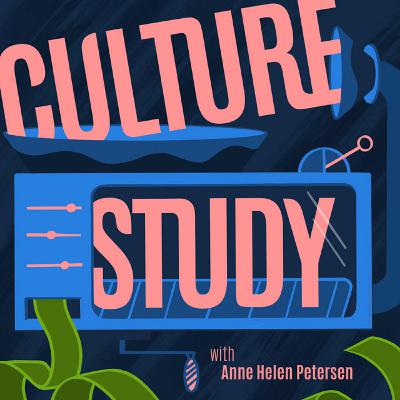




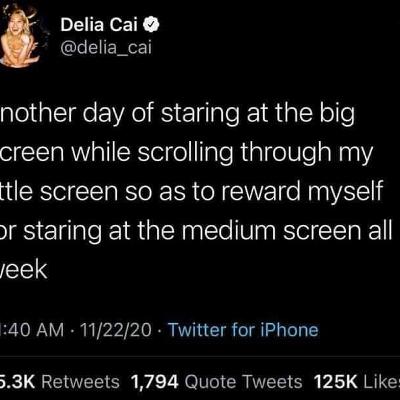
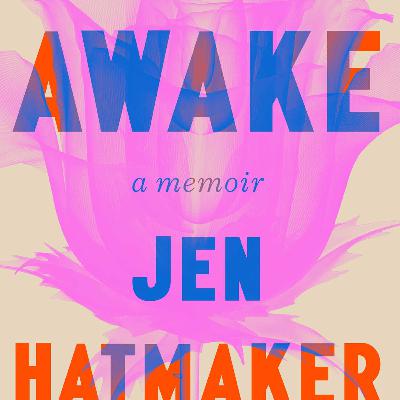
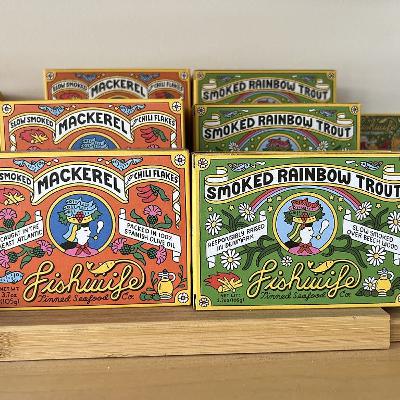

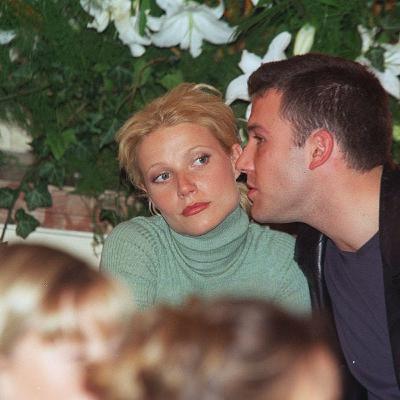


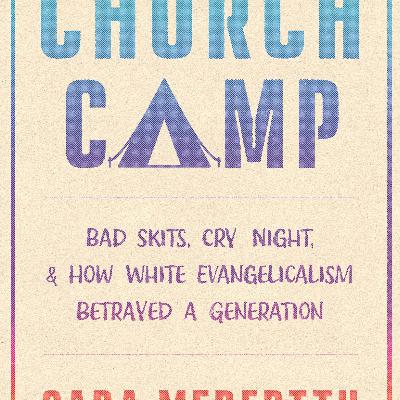




I just found it so funny that you guys talked about hemorrhoids for so long... but did it even say what they were! just like the doctors you were talking about! LOL 😆 I'm new to the podcast. someone told me that you and I were very much alike. excited to get to know you more!
I’m consistently impressed by the Culture Study Podcast's ability to dive deep into the nuances of contemporary culture. The discussions are always thought-provoking and well-researched, providing fresh perspectives on current trends and issues. https://hubhopper.com/episode/choosing-the-right-parchment-paper-for-home-cooking-1721632477/32639832